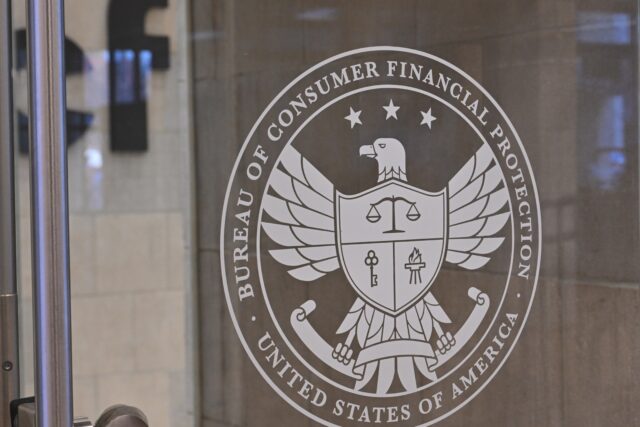The drivers to consume more calories, aided by foods engineered for this purpose, beats out our limited response against overconsumption. And Nora Volkow, Director of the National Institute on Drug abuse at the National Institute of Health found evidence showing that sugar becomes incredibly addictive when combined with ingredients in ultra-processed foods, with addiction levels similar to those found in individuals addicted to drugs.
The Mechanisms of Influence on Food Industry Standards
The food industry has influenced food standards on both the private and public levels. Professor Freudenberg notes that the Food Industry has massive influence on the dietary guidelines Americans use. “If you look at the food standards that the [United States Department of Agriculture (USDA)] has put out periodically, there is always a pretty big discrepancy between what independent nutritionists say about what is the ideal American diet and what those guidelines come out with.”
Instead of saying to “reduce the amount of highly processed food you ear, or significantly reduce the amount of meat you eat or the amount of milk you drink… [these recommendations] are not in the dietary standards because sectors of the food industry opposed them.”
In her book Weighing In: Obesity, Food Justice, and the Limits of Capitalism, Professor Julie Guthman goes even further, finding the FDA acted as an “utter patsy in preventing food substances of questionable safety and necessity from being put on the market.”
For its part, in the most recent Dietary Guidelines for Americans, published by the USDA and the U.S. Department of Health and Human Services, emphasizes that its guidance was “grounded in robust scientific reviews” and the scientists on its Dietary Guidance Advisory Committee conducted “an independent scientific review that was characterized by more transparency and public participation throughout the process than ever before.”
When looking at powerful non-governmental influences that shape the American diet, the Academy of Nutrition and Dietetics (AND) should be at the top of the list. It is the world’s “largest organization of food and nutrition professionals” with over 110,000 members, it and boasts that its messaging reached consumers 25 billion times in 2022. AND trains dieticians, who directly influence what people eat, and shapes the US government’s Dietary Guidelines for Americans.
AND bills itself as an impartial organization dedicated to supporting the public good. Its focus, according to its website, is to “improve the nutritional well-being of the public, while communicating the academic expertise of our members.” It is “committed to improving the nation’s health and advancing the profession of dietetics through research, education and advocacy.”
Mr. Ruskin and other members of U.S. Right to Know (USRTK) had begun looking into the influence of the ultra-processed food industry in the US and across the world. As the preeminent non-profit dietary organization in the United States, AND was a key place to look. AND had previously come under scrutiny for its ties with major food companies.
AND bills itself as an impartial organization dedicated to supporting the public good. Its focus, according to its website, is to “improve the nutritional well-being of the public, while communicating the academic expertise of our members.”
In 2017 the members of USRTK focused on attempting to find internal records of AND which would detail the extent of this corporate influence. After trying numerous records requests, they were finally successful in filing an open records request on December 21, 2017, under the Georgia Open Records Act for the communications of Donna Martin, a former President and Treasurer of AND.
Ms. Martin at the time also worked for the public school system in Georgia. Since she used her school email for AND business, her emails were within the reach of the open records laws. In their request, USRTK queried for mentions of key food companies (such as Splenda, Abbott Nutrition, Pepsi), in addition to the American Beverage Association from January 2013.
While there was no litigation, acquiring these records after the request filed took a long time. “There was a lot of back and forth with the records custodian in Burke County Georgia Schools. Thumb drives kept getting lost. Some of them [the emails] were unreadable. It just wasn’t totally clear what was happening with the records.” But despite this, ultimately Burke County responded with 28,204 pages of documents. USRTK then followed up with two more requests in 2019 and 2020, and received thousands more pages of documents detailing more of AND’s internal workings.
And while reading through FOIA’d documents can sometimes be “really boring” in Mr. Ruskin’s experience, the conflicts of interest discovered and the extent that the corporate food industry had influenced AND were “especially gripping” to the point that he fell off his chair several times with shock. There were several avenues in which AND tied itself closely to major agricultural and food corporations, both investing in and receiving millions of dollars from these corporations.

USDA Photo taken by Lance Cheung of a USDA Panel with representatives of AND, the University of Arkansas, Campus Kitchens Projects, as well as the American Farm Bureau Federation.
First, AND received millions of dollars in donations from food corporations in exchange for their sponsorship.
The documents obtained by USRTK note that sponsors, who provide cash donations, and generated over $1.1 million for AND in FY 2015, were entitled to “defined specific rights and benefits.” Benefits that AND was either discussing or agreed to do in exchange for sponsorships included giving certain food groups additional time or placement at AND’s annual Food and Nutrition Conference, unspecified “collaborative work” around nutrition, and funding AND dietary experts to deliver nutrition education.
Today, AND still has corporate sponsors such as: Abbot Laboratories, the National Confectioners Association, Bayer U.S.’s Crop Science Division, and the National Peanut board.
At AND’s professional meetings food companies present about the foods they are offering and nutrition more broadly. These presentations make up a significant part of the continuing education that nutritionists receive after graduating from school.
Examples of such demonstrations include a pamphlet that recommends putting sugar on vegetables for children who are picky, suggested by the Sugar Association, and Frito-Lay, makers of Tostitos, Doritos, Cheetos, and other ultra-processed snack foods, teaching dieticians about the impacts of salt.
Second, AND was directly invested in the very same industry it was responsible for regulating. Due to the limited nature of the data received by USRTK a complete picture of AND’s holdings is not available, but in 2015 it held over a million dollars in Nestle and Pepsico stock, roughly 5% of its entire equity profile, putting them in AND’s top 10 stock holdings.
“It is an off the charts conflict of interest to be a part owner in an ultra-processed food company. Public health organizations should never accept money from or invest in companies whose products engender ill health.”
While receiving money from and having investments in the same large food companies that AND is supposed to provide impartial dietary guidance on may strike some as a clear conflict of interest, following the release of USRTK’s report, AND strenuously denied any ethical conflict, stating that they have “stringent guidelines and principles that prohibit external influence from sponsors or any other group or individual.” Further, their response notes that less than 3% of their investments are in food companies, and less than 9% of its funding is from sponsors.
But to Mr. Ruskin, that was not enough. “It is an off the charts conflict of interest to be a part owner in an ultra-processed food company. Public health organizations should never accept money from or invest in companies whose products engender ill health.”
In addition to the nutrition profession, food corporations also play a large role in funding studies, so much so that Professor Marion Nestle, who tracks the influence of food companies on our food systems, has an “Industry-funded study of the week” portion of her newsletter.
An analysis of the articles published in the 10 most cited dietetics and nutrition journals by Professors Gary Sacks, Devorah Riesenberg, Melissa Mialon and Sarah Dean, the authors found that 196 out of 1461 articles published (roughly 15%) reported that they received some sort of funding or support from the food industry. This influence by the food industry was not uniform – some journals had industry involvement in over 25% of their articles, while others had under 5%.
But significantly, and not surprisingly, those studies which were supported by the food industry were much more likely to report favorable findings about the industry supporting it, 55.6%, compared to a favorable result of only 9.7% for non-supported studies.
Fixing America’s Food System
And in terms of moving forward to fix America’s food system, and preventing the harms of ultra-processed foods, both Mr. Ruskin and Professor Freudenberg point to the importance of getting rid of corporate influence not just on the food system, but how this problem reflects deeper issues within American democracy.
“The ultra-processed food industry is very powerful in the United States and throughout the world. And so what can citizens do?” asks Mr. Ruskin. “We have a highly corrupt federal campaign finance system that makes it hard for us to compete in Congress and our regulatory agencies. But at a minimum what we can do is document the problem of political corruption in our health institutions and hope that’s enough to make a backdrop for change.”
And while laying out various policy fixes, Professor Freudenberg also points to systemic changes that must be made to curb the power of big food. “As the food industry and other industries become concentrated, it is much harder for the public sector and government to regulate and control them. And we’ve seen a very steep increase in monopoly concentration in all sectors of the economy… so having stronger anti-monopoly laws and enforcing them would balance that power.”
“We have a highly corrupt federal campaign finance system that makes it hard for us to compete in Congress and our regulatory agencies. But at a minimum what we can do is document the problem of political corruption in our health institutions and hope that’s enough to make a backdrop for change.”
The lack of control Americans have ceded to large food corporations needs to be curbed according to Professor Freudenberg. “We can’t separate health and democracy. When people lose a voice in setting rules, whether at the local level or what the zoning rules are going to be and what stores can sell and not sell, those decisions get made by private actors… we need to restore those democratic means where voters and elected officials, rather than private interests, decide.”
As rates of chronic diseases continue to climb, the consequences of inaction on the health of American are high. While fixing America’s food system and weakening the influence of the ultra-processed food industry may seem like a daunting task, it is a battle worth fighting.



![[F]law School Episode 8: Selling Harvard Law Students](https://theflaw.org/wp-content/uploads/2024/09/Screenshot-2024-09-08-at-9.59.54 AM-640x427.png)






